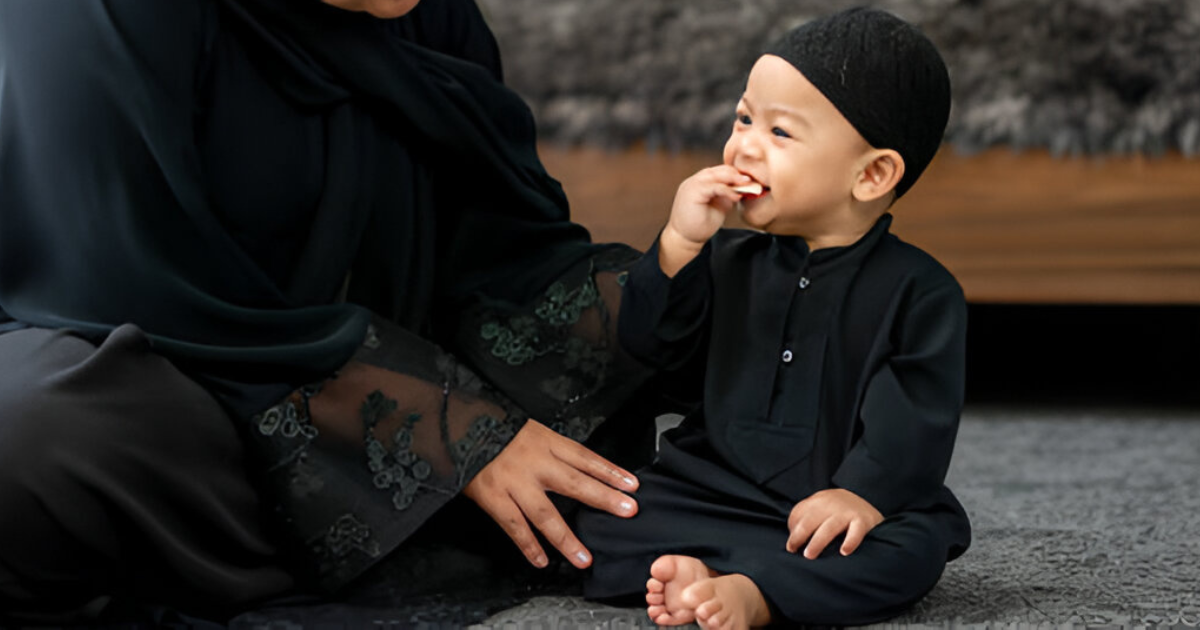Mastering Parenthood in Islam: Proven Principles for Raising Resilient and Righteous Children
Parenthood is one of the most significant responsibilities you can take on in your life, and in Islam, this role is especially sacred. Islam places immense importance on the role of parents in shaping the character, morals, and faith of their children. Whether you are a new parent or have been raising children for some time, understanding the guiding principles of parenthood in Islam can help you fulfill your responsibilities in the best way possible.
Table of Contents
As you embark on this journey, it’s essential to recognize the immense responsibility placed upon you, not just in providing for your children’s physical needs, but in nurturing their spiritual, emotional, and moral development as well. In Islam, parenthood is seen as a test, an opportunity to gain reward in this life and the hereafter. By adhering to Islamic principles, you can ensure that you are raising your children with love, wisdom, and guidance in alignment with the teachings of the Quran and Hadith.
In this article, we’ll explore the key aspects of parenthood in Islam, focusing on both the rights of children and the responsibilities you bear as a parent.
The Foundation of Parenthood in Islam
Parenthood as a Sacred Duty
In Islam, parenthood is not just about raising a child; it is a sacred duty that carries deep spiritual significance. Allah has entrusted parents with the care of their children, and this responsibility comes with profound spiritual rewards. The Quran teaches that parents should care for their children with love and affection while ensuring that they are raised in a morally upright and spiritually nurturing environment.
Quranic Teachings on Parenthood
The Quran stresses the importance of parents, particularly mothers. In Surah Luqman (31:14), it says: “And We have enjoined upon man [care] for his parents. His mother carried him with hardship upon hardship, and his weaning is in two years.” This verse highlights the immense sacrifice that mothers make and the respect and care they deserve. Fathers are also given significant duties, as Islam encourages both parents to contribute to the well-being of the family in a balanced way.
Hadith on Parental Responsibility
The Prophet Muhammad (PBUH) said, “The best of you are those who are the best to their wives and children.” This shows that fatherhood and motherhood in Islam are deeply connected to each other, and the mutual respect and cooperation between parents create an ideal environment for children to grow up in. As parents, you are entrusted with the responsibility of teaching your children how to live in accordance with Allah’s will.
Parental Rights and Responsibilities in Islam
Ensuring the Physical and Emotional Well-Being of Children
Parenthood Islamic encompasses a wide range of responsibilities, from meeting your child’s physical needs to nurturing their emotional and spiritual well-being. The balance between providing material needs and emotional care is crucial to raising well-rounded, healthy children.parenthood in Islam
Basic Needs
Your primary responsibility as a parent is to provide for your child’s basic needs, including food, shelter, clothing, and healthcare. The Prophet Muhammad (PBUH) emphasized the importance of providing for your family, saying: “It is enough of a sin for a man to neglect those whom he is responsible for.” Meeting these needs is an essential part of fulfilling your parental duties.
Emotional Support
Islam teaches that children need more than just physical provisions. They require emotional support, affection, and care. Children should feel secure, loved, and valued within the family. The Prophet Muhammad (PBUH) himself was known for showing affection to children, often taking them in his arms and offering them words of kindness and encouragement.
Education
Islam places great importance on education. In the Quran, Allah says, “Read! In the name of your Lord who created” (Quran 96:1), emphasizing the pursuit of knowledge. As a parent, you are responsible for educating your child, both in religious matters and worldly affairs. This includes teaching your child the basics of Islam, such as how to pray and fast, while also ensuring they receive a good education to help them succeed in life.
The Rights of Children in Islam
The Right to Be Loved and Cared For
In Islam, every child has the right to be treated with love, compassion, and care. Islam encourages you as a parent to show affection towards your children and treat them kindly. The Prophet Muhammad (PBUH) himself displayed great affection for his children and grandchildren, teaching parents to show love openly and without reservation.
Affection and Attention
It is essential for children to feel loved and valued, and the lack of affection can cause long-lasting emotional harm. Islam stresses that parents should avoid harshness and neglect, and instead, create an atmosphere of warmth and kindness. The Prophet Muhammad (PBUH) famously said: “He who does not show mercy to our children is not one of us.”
The Right to Be Educated
Your children have the right to an education that helps them grow spiritually, intellectually, and socially. The pursuit of knowledge is an obligation in Islam, as the Prophet Muhammad (PBUH) said: “Seeking knowledge is an obligation upon every Muslim.” By ensuring that your children receive both religious education and a secular education, you are fulfilling a critical role in their development.
Spiritual Education
Your responsibility as a parent extends to teaching your children about their faith. This includes teaching them the five pillars of Islam, ensuring they know how to pray, fast during Ramadan, and give to charity. A child’s spiritual development is key to their overall well-being, and it’s important that you serve as a role model for them.
Raising Children in the Light of Islamic Values
Instilling Islamic Ethics and Morality
One of your primary roles as a parent is to instill Islamic values in your children. This includes teaching them honesty, patience, respect, and kindness. The Prophet Muhammad (PBUH) taught that good character is one of the highest virtues a person can possess, and as a parent, you should guide your children to develop these qualities.
Honesty, Patience, and Kindness
Teaching your children to be honest, patient, and kind is not just about instructing them—it’s also about demonstrating these qualities yourself. Children often mimic the behavior of their parents, and by being a good role model, you teach them how to live according to Islamic principles.
Encouraging Respect and Gratitude
In Islam, respect for parents is of utmost importance. The Quran says, “And We have enjoined upon man [care] for his parents” (Quran 31:14), emphasizing the value of respect in family life. As a parent, you should encourage your children to show respect and gratitude towards you and others.
Teaching Gratitude
Gratitude towards Allah and one’s parents is a key tenet of Islam. Encourage your children to regularly express thanks to Allah for their blessings and to appreciate the sacrifices you make as parents. This practice fosters a sense of humility and thankfulness in them.
Challenges of Parenthood in islam
Modern Challenges in Raising Children According to Islamic Principles
While Islam provides clear guidelines on parenting, raising children in today’s world comes with its challenges. Balancing modern society’s influences with Islamic teachings can be difficult.
Balancing Tradition with Modernity
As a parent, you may find it challenging to reconcile traditional Islamic practices with the demands and pressures of contemporary life. For example, how do you help your child navigate a world that might not always align with Islamic values? The key is to stay grounded in your faith and be proactive in guiding your children through these challenges.
Technological Impact
With the rise of social media and technology, protecting your children from harmful content has become a crucial task. As a parent, it’s important to monitor your children’s online activity and ensure they are not exposed to material that conflicts with Islamic values.
Conclusion: Parenthood as a Path to Reward and Blessings
Parenthood in Islam is a profound and rewarding journey. By fulfilling your responsibilities as a parent with love, wisdom, and dedication, you not only ensure your children’s well-being but also earn immense rewards from Allah. Raising children in the light of Islamic teachings is a path to spiritual growth, both for you and your children.
Remember, Islam views parenthood as a means of gaining blessings in this life and the hereafter. Every act of kindness, every lesson you teach, and every sacrifice you make brings you closer to Allah’s pleasure. Embrace this sacred responsibility and fulfill your duties with sincerity, and you will undoubtedly find success in raising righteous, compassionate children.
FAQs About Parenthood in Islam
Q: What are the primary responsibilities of parents in Islam?
A: Parents are responsible for ensuring their children’s physical, emotional, and spiritual well-being, providing for their basic needs, teaching them moral values, and guiding them in religious matters.
Q: How does Islam view the role of fathers in parenthood?
A: Fathers in Islam are considered the primary providers and protectors of the family. They are expected to provide for their children’s material needs and also serve as moral and spiritual guides.
Q: Can parents discipline their children in Islam?
A: Yes, discipline is important in Islam, but it must be done with love, fairness, and respect. Islam encourages parents to correct behavior while avoiding excessive punishment or harshness.
Q: How can parents encourage their children to follow Islamic values?
A: Parents should be role models, provide education about Islam, and create an environment where Islamic principles are consistently practiced and upheld.
Here are the links to the sources that support the article on “Parenthood in Islam: Guiding Principles and Parental Responsibilities”:
1. The Quran:
Quran.com
2. Sahih Bukhari and Sahih Muslim (Hadith Collections):
Sahih Bukhari on Sunnah.com
Sahih Muslim on Sunnah.com
3. Islamic Online University:
Islamic Online University
These resources offer deep insights into the Islamic teachings related to parenthood.







